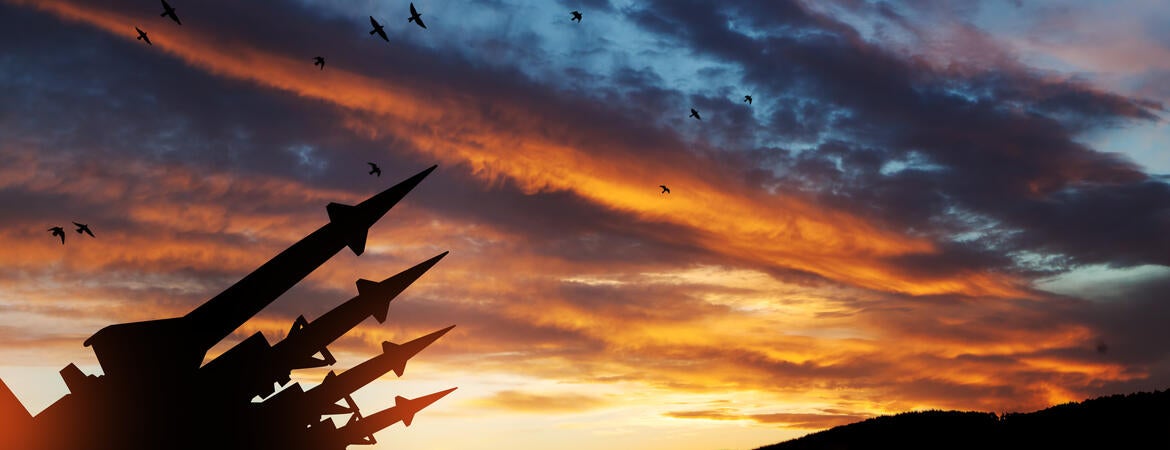
Images that circulated recently depict drones blowing up over Red Square in Moscow. As part of its response, a Russian official said, “decisions about such actions and such terrorist acts are made not in Kyiv, but in Washington,” leading many to ask what the Russian retaliation will look like. The U.S. and Ukraine, meanwhile, alleged Russia staged the attacks to justify further aggression in Ukraine. We asked Ukraine and Russia expert Paul D'Anieri to assess the threat as the U.S. and its NATO allies increase their support for Ukraine in the 14-month-old war. D'Anieri is the author of "Ukraine and Russia: From Civilized Divorce to Uncivil War"; a revised edition of the book was released on March 23. He is also author of the book "Understanding Ukrainian Politics: Power, Politics and Institutional Design." For the 2017-18 academic year, he served as a fellow in the Harvard University Ukrainian Research Institution. He is a political science and public policy professor at UC Riverside.
Q: The U.S. and its NATO allies have attempted to strike a balance between aiding Ukraine while not instigating a direct conflict with Russia. Have they succeeded?
D'Anieri: The western allies have struck this balance quite effectively, and Ukraine has generally cooperated by not attacking Russia as much as it could. However, difficult decisions are ahead, in particular to the extent that Ukraine needs more and better weapons to expel Russia. A second challenge will arise if and when Ukraine is able to take back Crimea. It seems that Crimea is more important to Putin than other Ukrainian territory.
Q: Is the U.S. effectively at war with Russia?
D'Anieri: No. There is a big gap, well-understood on all sides, between arming an ally and directly engaging with Russia. There were many parallel examples during the Cold War when the U.S. and Soviet Union (Russia) aided each other’s enemies without directly getting involved, and while this didn’t always make the other side happy, it was never seen as direct attack. In fact, the U.S. and Russian militaries have for decades been very careful to avoid directly shooting at one another, for fear of where it might end.
Q: Are we close to full-scale world war?
D'Anieri: No. The U.S. has not attacked Russia and Russia has not attacked the U.S., and neither of those things is even remotely likely at this point.
Q: What is the price of Russian military strikes on U.S. soil? Is there a more likely course of Russian retaliation against the U.S.?
D'Anieri: Such an attack must be regarded as extremely unlikely. If such an attack were to take place, the U.S. would likely seek to respond in a way that is proportional but not escalatory. Uncertainty about what would lead to escalation explains why the U.S. and Russia take such care to avoid direct combat, even as they support competing sides in some conflicts.
Russia has sought to intervene in U.S. elections in the past, and likely will continue to do so. One might also expect cyber attacks, but we have not seen them thus far in this war. That suggests the Russians understand that they too are vulnerable. It is also quite likely that with Russian forces already overextended fighting against Ukraine, Russian leaders realize that a second major conflict is not in their interest.
Q: Checking in at 14 months, how heavy is the cost of war for Russia, in terms of the human toll and economics? Has Russia made resource and allocation adjustments in the past months that will allow it to sustain these losses?
D'Anieri: Russia’s recent war efforts appear to be unsustainable. They have lost large numbers of soldiers and expended significant amounts of ammunition, such that commanders in the field are complaining about shortages and are suggesting that they may soon have to switch from offense to defense, which is less costly in terms of people and materiel.
Overall, the Russian economy is holding up. Growth is very slow, and shortages of various imported goods are mounting, but there are no signs that economic factors will severely constrain the war effort any time soon. However, it would appear that before the Russian military could undertake another large-scale offensive, a significant program of recruitment, training, and re-arming would need to take place. It appears that Russia cannot retake the offensive in 2023.
Q: Sun Tzu, a Chinese theorist of war, said to build your adversary a “golden bridge” to encourage retreat. Fourteen months in, is there a “golden bridge” — an “out” that Putin would find acceptable?
D'Anieri: So far, Putin has shown zero signs of looking for a way out. Therefore, it appears that until Ukraine shows that it can drive Russian forces out of Ukraine, Russia would rather simply hold on to what it has gained than negotiate for something less.
Q: How does the U.S. course re. Ukraine change if Trump wins in 2024?
D'Anieri: Predicting the behavior of former President Trump is challenging, but many people believe that U.S. support for Ukraine would be dramatically reduced under a Trump administration. This is one more reason why we can expect Putin to resist any concessions until after the 2024 election. Why make concessions when waiting a few more months might make such concessions unnecessary?



